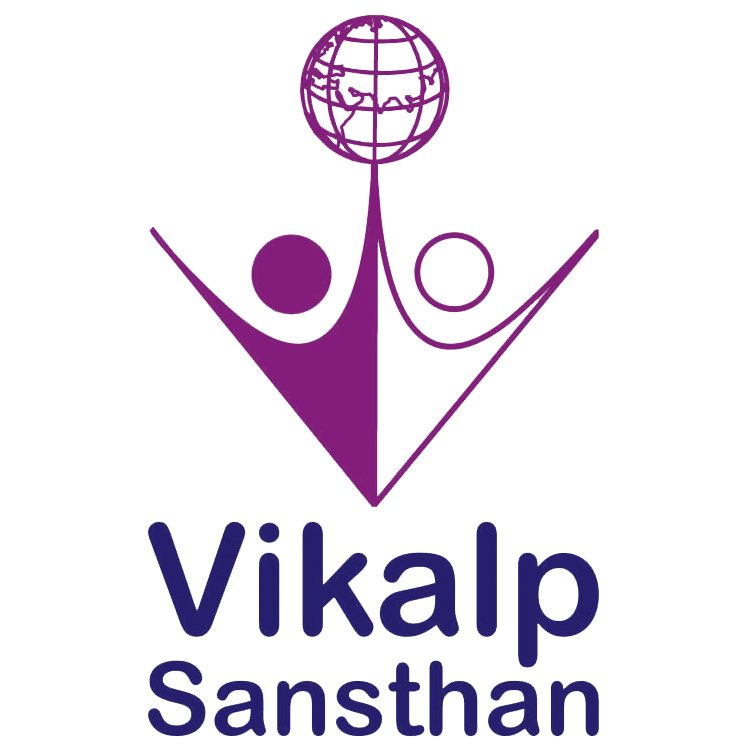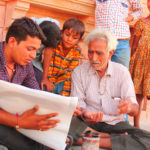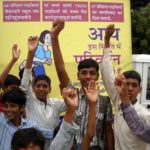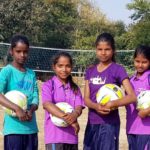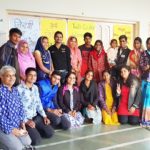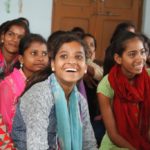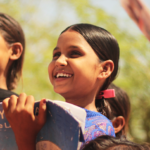Advocacy
- Home
- Advocacy
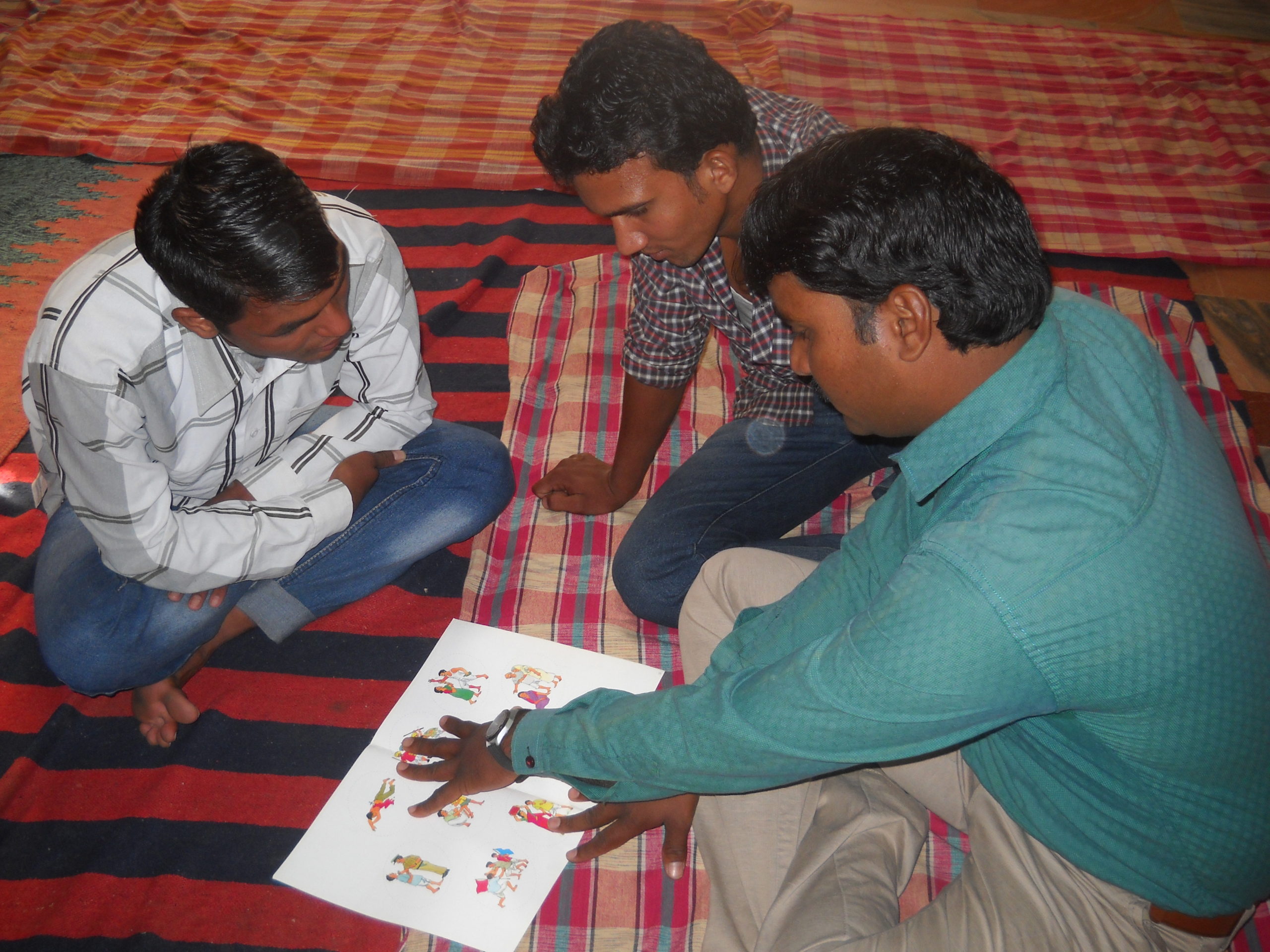
A significant portion of Vikalp’s work is devoted to advocacy with local and state governments, education administrations and other bodies on women’s issues. As well as providing counseling and advice to government officials on legislation regarding the legal rights and protection of women and the effectiveness of laws, we help raise awareness in communities about their rights and responsibilities under existing laws, and advocate for their proper enforcement.
Currently, Vikalp focuses on three significant laws and their implementation
The Prevention of Child Marriage Act of 2006
This Act was passed in 2006 as a replacement to the Child Marriage Restraint Act of 1929. This Act outlaws any marriage in which one of the contracting parties is under the legal age of marriage, age 21 for men and 18 for women. The law also stipulates that the guardians of minors who are contracted into a child marriage are responsible for breaking the law and consequently are punishable by a jail sentence, a fine, or both.
The Protection of Women from Domestic Violence Act 2005
In 2005, the Indian parliament passed this Act to provide women with more protection from domestic violence and abuse under Indian law. This act extends coverage under the Act to all women living in household with domestic violence, including wives, sisters, mothers, daughters and widows. The Act also expands the definition of domestic violence and abuse to include actual abuse or the threat of abuse whether physical, sexual, verbal, emotional or economic. In this way, unlawful dowry demands are also considered domestic violence.
The Pre-Conception and Pre-Natal Diagnostic Techniques Act of 1994 (PCPNDT Act)
This act was passed by the Indian government in 1994 to prevent female feticide and address the drastically declining sex ratio in India. Due to advances in ultrasound technology, families are able to determine the sex of their unborn child; this led to a rise in sex-selective abortions and female feticide in the past few decades. The Act aims to prevent this occurrence by requiring all sonography and ultrasound clinics to be registered with the government and prohibiting them from running tests to determine the sex of a baby.
Vikalp Sansthan STATISTICS
- Established Since: 2004
- Working in 12 Districts of Rajasthan
- Working across 510 Villages of Rajasthan
- 4500 Domestic Violence Survivors (Women) Got Counselling
- 10000 Girls Are Pursuing Higher Education
- 12000 Former Child Brides Are Pursuing Higher Education
- 74 villages declared child marriage free
- 40 Gram Panchayats have vowed to make their Panchayats free of child marriage
- More Than 160,000 People Have Taken an Oath To Never Perform Or Participate In A Child Marriage. Of this, 16000 People Have Taken A Written Oath
Vikalp Sansthan Needs YOUR HELP
Vikalp Sansthan’s Work to stop Violence Against Woman featured by Oxfam India
The film covers the work of Oxfam India partner Vikalp in Rajasthan who have trained men in the community as changemeakers on the issue of violence against women.
Vikalp Sansthan Our Daughter’s Right Campaign
Vikalp Sansthan’s Work on Education for Girls
‘NO’ to Child Marriage
your help will bring smiles to many faces
Join With Us- cbd oil
- cbd oil uk
- cbd oil benefits
- best cbd oil
- benefits of cbd oil
- best cbd oil uk
- what does cbd oil do
- what is cbd oil good for
- cbd oil anxiety
- full spectrum cbd oil uk
- cannaray cbd oil
- full spectrum cbd oil
- cbd oil for anxiety
- buy cbd oil
- cbd oil sleep
- cbd oil for sleep reviews
- cbd oil tesco
- how to take cbd oil
- cbd oil boots
- best cbd oil uk 2023
- holland and barrett cbd oil
- cbd oil for sleep
- pure cbd oil
- cbd oil holland and barrett for pain relief
- cbd oil benefits sexually
- cbd oil for pain
- cbd oil superdrug
- vitality cbd oil
- how to use cbd oil
- boots cbd oil
- cbd oil near me
- cbd oil drops
- cbd oil reviews
- cbd oil for sale
- cbd oil uses
- cheapest cbd oil uk
- cbd oil for depression
- cbd oil for arthritis
- hemp oil vs cbd oil
- is cbd oil good for arthritis
- cbd oil uk buy
- strong cbd oil
- is cbd oil safe
- strongest cbd oil holland and barrett
- buy cbd oil uk
- when to take cbd oil for sleep
- where to buy cbd oil
- how long does cbd oil take to work
- high strength cbd oil
- strongest cbd oil
- cbd oil dosage
- what is cbd oil used for
- cbd oil for insomnia nhs
- cbd oil for joint pain uk
- organic cbd oil
- where can i buy cbd oil
- cbd oil buy
- the best cbd oil uk
- 1000mg cbd oil
- cbd oil for osteoarthritis
- best cbd oil for anxiety
- benefits of cbd oil under tongue
- cbd oil full spectrum uk
- what are the benefits of cbd oil
- massage oil
- massage oil boots
- boots massage oil
- best massage oil
- body massage oil
- turmeric massage oil
- sensual massage oil
- cbd massage oil
- massage oil superdrug
- coconut massage oil
- massage oil for couples
- superdrug massage oil
- body shop massage oil
- massage oil tesco
- massage oil asda
- turmeric massage oil for arthritis
- massage oil near me
- holland and barrett massage oil
- body and massage oil
- sainsburys massage oil
- massage oil holland and barrett
- massage oil uk
- massage oil sainsburys
- massage oil relaxing
- relaxing massage oil
- mens massage oil
- natural massage oil
- best massage oil uk
- jasmine and turmeric massage oil
- massage oil for men
- sports massage oil
- where to buy massage oil
- organic massage oil
- massage oil for arthritis
- massage oil gift set
- cbd massage oil uk
- arthritis massage oil
- jojoba massage oil
- water based massage oil
- ylang ylang massage oil
- cbd massage oil
- cbd massage oil uk
- cbd massage oil for pain
- cbd massage oil holland and barrett
- cbd massage oil for pain relief
- cbd massage oil benefits
- cbd massage oil wholesale
- best cbd massage oil
- cbd massage oil reviews
- buy cbd massage oil
- full spectrum cbd massage oil
- organic cbd massage oil
- cbd massage oil for pain uk
- cbd massage oil for sale
- cbd massage oil for chronic arthritis pain
- strongest cbd massage oil
- wholesale cbd massage oil
- cbd massage oil sleep
- cbd massage oil sensual
- cbd massage oil organic
- cbd massage oil relax
- cbd massage oil for back pain
- cbd massage oil inflamation
- best cbd massage oil for pain
- buy organic cbd massage oil online
- best place to buy cbd massage oil
- cbd massage oil near me
- cbd massage oil for sale uk
- benefits of cbd massage oil
- cbd massage oil buy
- cbd massage oil online
- where to buy cbd massage oil
- cbd balm
- cbd balm uk
- cbd balm for pain uk
- best cbd balm uk
- love cbd balm
- holland and barrett cbd balm
- cbd balm for muscles
- puresport cbd balm
- cbd balm for pain
- strong cbd balm uk
- vitality cbd balm
- cbd balm 1000mg
- daye cbd balm
- cbd balm stick
- cbd balm holland and barrett
- does cbd balm work
- boots cbd balm
- provacan cbd balm
- blessed cbd balm
- cbd balm for psoriasis
- healthspan cbd balm
- kloris cbd balm
- what is cbd balm
- strongest cbd balm uk
- buy cbd balm
- cbd balm for joint pain uk
- cbd balm reviews uk
- holland barrett cbd balm
- full spectrum cbd balm uk
- cbd balm benefits
- cbd balm uses
- cbd balm 2000mg
- ninja cbd balm
- 1000mg cbd balm
- best cbd balm
- cbd balm for arthritis
- does cbd balm work for pain
- high strength cbd balm
- cbd balm pain relief uk
- organic cbd balm
- cbd balm for tendonitis
- cbd balm uk 1000mg
- cbd balm for pain relief
- best cbd balm for inflammation
- how to use cbd balm
- cbd balm for sleep
- cbd balm use
- benefits of cbd balm
- cbd balm for anxiety
- best cbd balm for pain uk
- cbd balm 300mg
- cbd balm for sale
- full spectrum cbd balm
- cbd balm for muscle recovery
- cbd balm for skin
- cbd balm muscle
- cbd balm for joint pain
- what does cbd balm do
- how does cbd balm work
- cbd balm 500mg
- buy cbd balm online
- muscle cbd balm
- high strength cbd balm uk
- cbd balm near me
- cbd skin balm
- hemptouch soothing cbd skin balm
- malantis cbd skin balm
- therapeutic cbd skin balm
- cbd skin balm benefits
- soothing cbd skin balm
- hemptouch therapeutic cbd skin balm
- cbd roll on
- cbd roll on for pain
- cbd roll on uk
- cbd roll on pain relief
- cbd roll on oil
- freeze cbd roll on
- best cbd roll on
- cbd roll on stick
- cbd roll on stick uk
- naysa cbd roll on
- how to use cbd roll on
- cbd roll on sticks
- hempz cbd roll on
- cbd roll on for joint pain
- what is cbd roll on
- cbd roll on for headaches
- rethink cbd roll on
- ananda cbd roll on
- cbd roll on relief
- freeze cbd roll on 750mg
- just cbd roll on
- cbd roll on reviews
- best cbd roll on for anxiety
- cbd roll on pain reliever
- soothe cbd roll on
- cbd roll on for pain relief
- benefits of cbd roll on
- full spectrum cbd roll on
- cbd roll on oil for pain
- cbd roll on for sleep
- cbd roll on near me
- buy cbd roll on
- cbd roll on balm
- best cbd roll on for pain
- cbd roll on for anxiety
- cbd roll on for migraines
- cbd roll on review
- what does cbd roll on do
- cbd roll-on pain relief uk
- cbd roll-on
- cbd roll-on for pain 3000mg
- cbd roll-on for pain 1500mg
- cbd roll-on for joint pain
- cbd roll-on for back pain
- cbd roll-on for anxiety
- cbd roll-on for migraines
- cbd roll-on for pain near me
- cbd gift set
- cbd gift sets
- cbd gift
- body shop cbd gift set
- cbd gift box
- cbd gift set body shop
- cbd gift boxes
- cbd gift card
- cbd gift set uk
- cbd gift ideas
- cbd gift set holland and barrett
- cbd gift basket
- cbd gift sets uk
- vitality cbd gift set
- cbd gift sets for men
- cbd gift sets for women
- premium cbd gift box
- cbd gift baskets
- cbd gift ideas for women
- cbd gift cards
- cbd gift pack
- luxury cbd gift
- cbd gift basket for him
- cbd gift basket for her
- cbd gift guide
- holland and barrett cbd gift set
- cbd gifts
- cbd gifts uk
- best cbd gifts
- cbd gifts for mom
- cbd gifts for christmas
- cbd gifts for him
- cbd gifts and goods
- cbd gifts for women
- luxury cbd gifts
- cbd gifts for dad
- cbd gifts for her
- cbd brands
- best cbd brands
- cbd brands uk
- best cbd brands uk
- top cbd brands
- trusted cbd brands
- uk cbd brands
- luxury cbd brands
- reputable cbd brands
- best cbd brands for athletes
- top selling cbd brands
- organic cbd brands
- new cbd brands
- popular cbd brands
- best cbd brands europe
- good cbd brands
- top rated cbd brands
- biggest cbd brands
- top 10 cbd brands
- full spectrum cbd brands
- most trusted cbd brands
- best cbd brands for anxiety
- cbd manufacturers uk
- cbd manufacturers
- cbd manufacturers europe
- cbd manufacturers wholesale
- uk cbd manufacturers
- hemp cbd manufacturers
- wholesale cbd manufacturers
- best cbd manufacturers
- top cbd manufacturers
- cbd manufacturers near me
- cbd oil manufacturers
- cbd oil manufacturers uk
- cbd oil manufacturers europe
- cbd shop
- best cbd shop london
- best cbd shop uk
- best online cbd shop uk
- cbd shop aberdeen
- cbd shop barnstaple
- cbd shop basel
- cbd shop bath
- cbd shop belfast
- cbd shop benidorm
- cbd shop birmingham
- cbd shop blackpool
- cbd shop bournemouth
- cbd shop bradford
- cbd shop brentwood
- cbd shop brighton
- cbd shop bristol
- cbd shop bury st edmunds
- cbd shop caerphilly
- cbd shop cambridge
- cbd shop camden
- cbd shop cardiff
- cbd shop colchester
- cbd shop dundee
- cbd shop eastbourne
- cbd shop edinburgh
- cbd shop exeter
- cbd shop frome
- cbd shop glasgow
- cbd shop gloucester
- cbd shop hamilton
- cbd shop hull
- cbd shop kidderminster
- cbd shop leeds
- cbd shop leicester
- cbd shop liverpool
- cbd shop london
- cbd shop lyon
- cbd shop manchester
- cbd shop mear me
- cbd shop middlesbrough
- cbd shop near me
- cbd shop near me
- cbd shop near to me
- cbd shop newcastle
- cbd shop newcastle upon tyne
- cbd shop newquay
- cbd shop norwich
- cbd shop nottingham
- cbd shop online
- cbd shop oxford
- cbd shop portobello road
- cbd shop portsmouth
- cbd shop prague
- cbd shop reading
- cbd shop rochester
- cbd shop sheffield
- cbd shop shrewsbury
- cbd shop sittingbourne
- cbd shop southampton
- cbd shop swansea
- cbd shop toulouse
- cbd shop uk
- cbd shop uk online
- cbd shop wakefield
- cbd shop warrington
- cbd shop york
- edinburgh cbd shop
- london cbd shop
- online cbd shop
- online cbd shop uk
- the cbd shop
- the cbd shop belfast
- the cbd shop reviews
- the cbd shop uk
- tops cbd shop
- tops cbd shop uk
- uk cbd shop
- best place to buy cbd oil
- best place to buy cbd oil uk
- buy cbd oil
- buy cbd oil 4800mg broad spectrum
- buy cbd oil amazon
- buy cbd oil belfast
- buy cbd oil blessed cbd
- buy cbd oil bradford
- buy cbd oil capsules
- buy cbd oil cheshire
- buy cbd oil for anxiety uk
- buy cbd oil for pain
- buy cbd oil for pain online
- buy cbd oil for pain uk
- buy cbd oil for seizures
- buy cbd oil for vape pen
- buy cbd oil glasgow
- buy cbd oil high strength
- buy cbd oil in birmingham
- buy cbd oil in bulk
- buy cbd oil in lawson co
- buy cbd oil in uk
- buy cbd oil ireland
- buy cbd oil manchester
- buy cbd oil near me
- buy cbd oil netherlands
- buy cbd oil newcastle
- buy cbd oil newcastle uk
- buy cbd oil online
- buy cbd oil online uk
- buy cbd oil stockport
- buy cbd oil uk
- buy cbd oil vape uk
- buy cbd oil warrington
- buy cbd oil wholesale
- buy cbd oil wholesale uk
- buy cbd oil with thc
- can i buy cbd oil
- can i buy cbd oil in a chemist
- can you buy cbd oil
- can you buy cbd oil from boots
- can you buy cbd oil in the uk
- can you buy cbd oil in uk
- can you buy cbd oil online
- can you buy cbd oil over the counter uk
- how can i buy cbd oil
- how old do you have to be to buy cbd oil
- how old to buy cbd oil
- how old to buy cbd oil uk
- how to buy cbd oil
- is it legal to buy cbd oil in uk
- places to buy cbd oil near me
- where buy cbd oil
- where can i buy cbd oil
- where can i buy cbd oil in glasgow
- where can i buy cbd oil in uk
- where can i buy cbd oil near me
- where can i buy cbd oil uk
- where can you buy cbd oil
- where to buy cbd oil
- where to buy cbd oil capsules near me
- where to buy cbd oil in kitchener
- where to buy cbd oil in london
- where to buy cbd oil in newcastle upon tyne
- where to buy cbd oil in the uk
- where to buy cbd oil in uk
- where to buy cbd oil near me
- where to buy cbd oil near me uk
- where to buy cbd oil online
- where to buy cbd oil uk
- whete can i buy cbd oil
- Netcover Online
- Netcover Online Blog
- HB
- SP
- HB
- Cyclex UK
- EdNow
- Trust Pilot
- PrLog
- Coupon Seeker
Contact Us
VIKALP SANSTHAN
